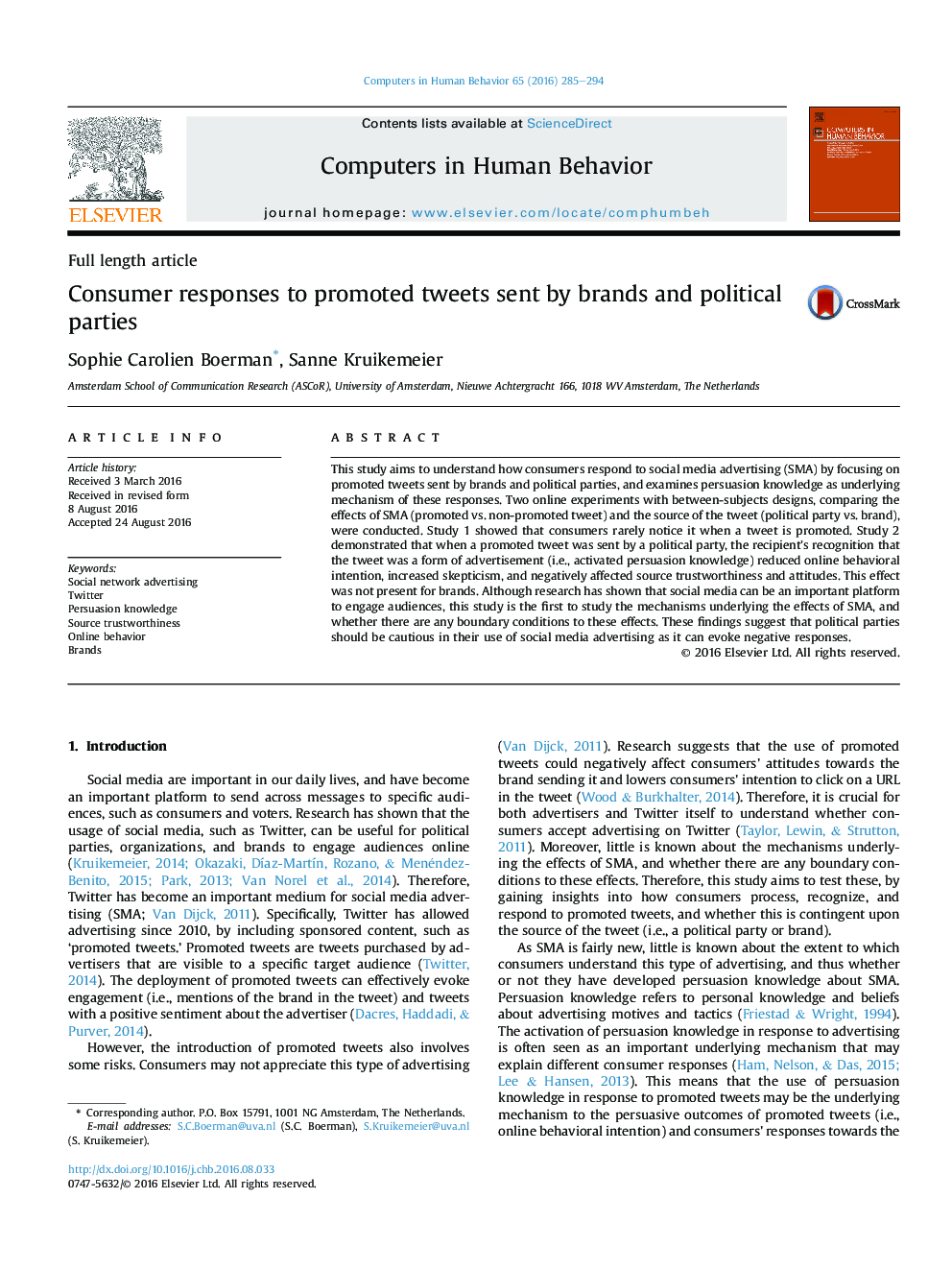| Article ID | Journal | Published Year | Pages | File Type |
|---|---|---|---|---|
| 4937796 | Computers in Human Behavior | 2016 | 10 Pages |
Abstract
This study aims to understand how consumers respond to social media advertising (SMA) by focusing on promoted tweets sent by brands and political parties, and examines persuasion knowledge as underlying mechanism of these responses. Two online experiments with between-subjects designs, comparing the effects of SMA (promoted vs. non-promoted tweet) and the source of the tweet (political party vs. brand), were conducted. Study 1 showed that consumers rarely notice it when a tweet is promoted. Study 2 demonstrated that when a promoted tweet was sent by a political party, the recipient's recognition that the tweet was a form of advertisement (i.e., activated persuasion knowledge) reduced online behavioral intention, increased skepticism, and negatively affected source trustworthiness and attitudes. This effect was not present for brands. Although research has shown that social media can be an important platform to engage audiences, this study is the first to study the mechanisms underlying the effects of SMA, and whether there are any boundary conditions to these effects. These findings suggest that political parties should be cautious in their use of social media advertising as it can evoke negative responses.
Related Topics
Physical Sciences and Engineering
Computer Science
Computer Science Applications
Authors
Sophie Carolien Boerman, Sanne Kruikemeier,
